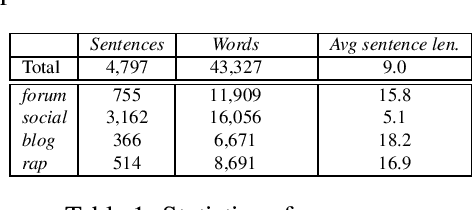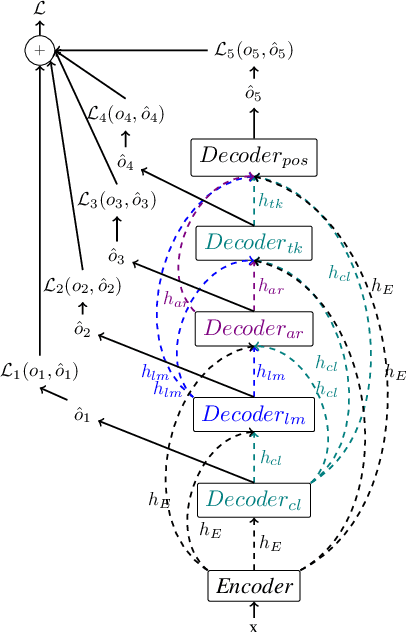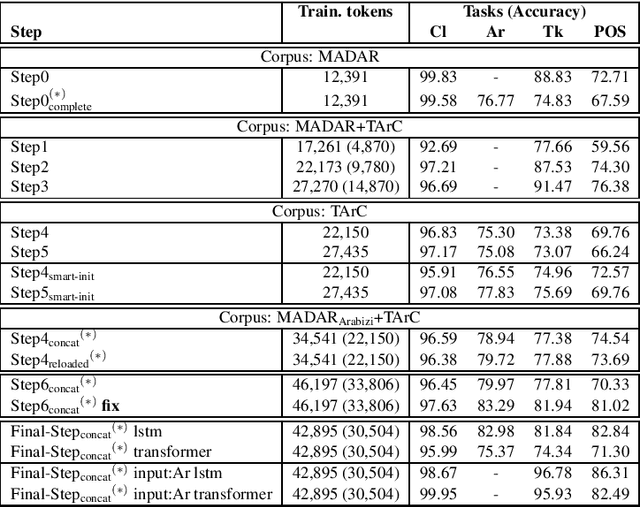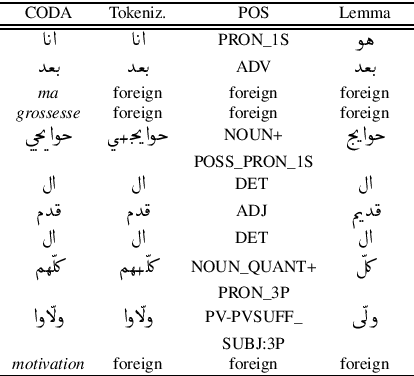TArC: Tunisian Arabish Corpus First complete release
Paper and Code
Jul 11, 2022



In this paper we present the final result of a project on Tunisian Arabic encoded in Arabizi, the Latin-based writing system for digital conversations. The project led to the creation of two integrated and independent resources: a corpus and a NLP tool created to annotate the former with various levels of linguistic information: word classification, transliteration, tokenization, POS-tagging, lemmatization. We discuss our choices in terms of computational and linguistic methodology and the strategies adopted to improve our results. We report on the experiments performed in order to outline our research path. Finally, we explain why we believe in the potential of these resources for both computational and linguistic researches. Keywords: Tunisian Arabizi, Annotated Corpus, Neural Network Architecture
 Add to Chrome
Add to Chrome Add to Firefox
Add to Firefox Add to Edge
Add to Edge